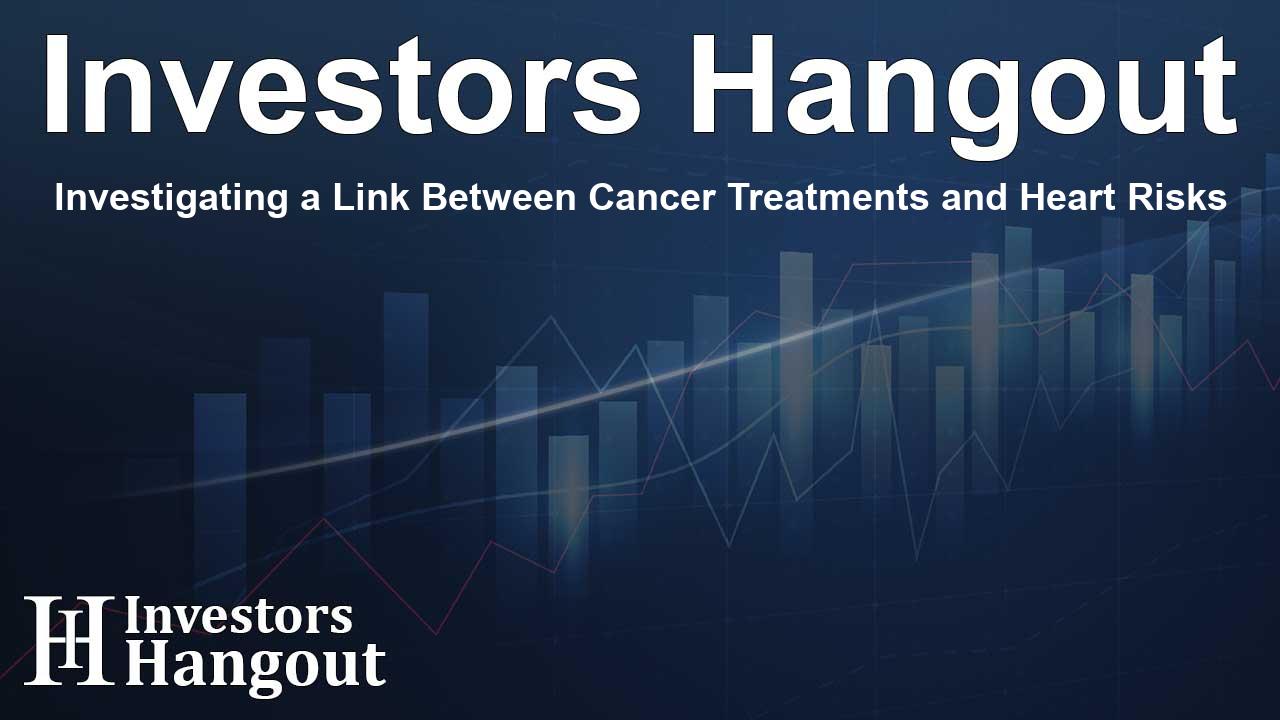Investigating a Link Between Cancer Treatments and Heart Risks

Understanding the Link Between Cancer Treatments and Heart Health
Cancer treatments have made great strides, particularly through therapies that utilize the body’s immune responses to combat cancerous cells. However, recent studies reveal that these treatments may also inadvertently increase the risk of heart disease. A study led by researchers indicates that immune checkpoint inhibitors can cause vulnerabilities in heart health, paving the way for potential heart attacks and strokes.
Mechanism of Immune Checkpoint Inhibitors
Immune checkpoint inhibitors are a class of cancer drugs designed to enhance the immune system's ability to destroy tumor cells. By blocking immune checkpoints — the natural brakes on the immune response — these treatments can trigger a robust attack on cancer. However, this same action may induce harmful inflammatory responses in vital organs like the heart and brain.
Inflammation in Heart Health
This inflammatory process could lead to significant cardiovascular issues, particularly for patients with pre-existing conditions such as atherosclerosis. Past research has shown that roughly 10% of patients with atherosclerosis experience a heart attack or stroke after receiving cancer treatment. Despite this alarming statistic, the specific reasons behind the heightened risk had not been thoroughly understood until now.
Exploring the Cellular Interactions
To delve deeper into these mechanisms, the research team investigated how immune checkpoint inhibitors interact with immune cells in arterial plaques. Their genetic analysis revealed that these checkpoint inhibitors do not only engage with cancer cells but also affect immune cells present in vascular tissues. This discovery establishes a potential connection between the medications used for cancer treatment and cardiovascular complications.
Implications for Cancer Patients
Dr. Chiara Giannarelli, a study co-author, emphasizes the need for heightened awareness among cancer patients and healthcare providers regarding the potential heart risks following treatment. Continuous monitoring for heart health issues becomes increasingly crucial as the interplay between cancer therapies and cardiovascular health becomes clearer.
Effects of Coexisting Conditions
In addition to assessing the impact of cancer treatments, the study also considered the influence of Type 2 diabetes. This condition is a noted risk factor for both cancer and cardiovascular diseases. The researchers examined how diabetes exacerbates the negative effects of checkpoint inhibitors in patients with atherosclerosis, noting observable deficits in inflammation regulation among diabetic patients compared to healthier individuals.
Research Findings and Future Directions
The experimental data suggests a complex dynamic where cancer patients, particularly those with diabetes, face compounded risks when undergoing immune checkpoint therapy. The interference of these treatments with the body's natural ability to moderate inflammation could make it more challenging to manage atherosclerosis.
New Treatment Strategies
As experts gain deeper insights into the relationships among cancer, diabetes, and heart disease, efforts to devise strategies that mitigate the risks associated with these interactions are underway. Dr. Kathryn Moore, another co-lead author, points out the importance of a holistic approach that considers the multi-faceted nature of these diseases.
Looking Ahead
The findings from this recent study not only pave the way for potential clinical implications but also highlight the necessity for further research in cancer patients. The team plans to investigate immune checkpoint behavior directly in cancer patients during future studies, aiming to uncover more tailored treatment approaches that consider both cancer treatment efficacy and cardiovascular health.
Frequently Asked Questions
What are immune checkpoint inhibitors?
Immune checkpoint inhibitors are cancer treatments that enhance the immune system's ability to fight cancer by blocking proteins that prevent immune activity, thus increasing immune response against tumors.
How can cancer treatments affect heart health?
Cancer treatments, particularly immune checkpoint inhibitors, can trigger inflammatory responses in the heart, which may increase the risk of heart disease and other cardiovascular problems.
What did the recent study find?
The study identified a link between immune checkpoint inhibitors and cardiovascular events, highlighting the need for patients to be monitored for heart health during cancer treatment.
Why is diabetes a concern for cancer patients undergoing treatment?
Diabetes is a risk factor for both cancer and heart disease, and it may enhance the adverse effects of cancer treatments, complicating the management of cardiovascular health.
What should cancer patients be aware of?
Cancer patients should remain vigilant about potential heart health issues and consult with their healthcare providers about monitoring and strategies to mitigate risk after undergoing immune checkpoint therapy.
About The Author
Contact Olivia Taylor privately here. Or send an email with ATTN: Olivia Taylor as the subject to contact@investorshangout.com.
About Investors Hangout
Investors Hangout is a leading online stock forum for financial discussion and learning, offering a wide range of free tools and resources. It draws in traders of all levels, who exchange market knowledge, investigate trading tactics, and keep an eye on industry developments in real time. Featuring financial articles, stock message boards, quotes, charts, company profiles, and live news updates. Through cooperative learning and a wealth of informational resources, it helps users from novices creating their first portfolios to experts honing their techniques. Join Investors Hangout today: https://investorshangout.com/
The content of this article is based on factual, publicly available information and does not represent legal, financial, or investment advice. Investors Hangout does not offer financial advice, and the author is not a licensed financial advisor. Consult a qualified advisor before making any financial or investment decisions based on this article. This article should not be considered advice to purchase, sell, or hold any securities or other investments. If any of the material provided here is inaccurate, please contact us for corrections.
